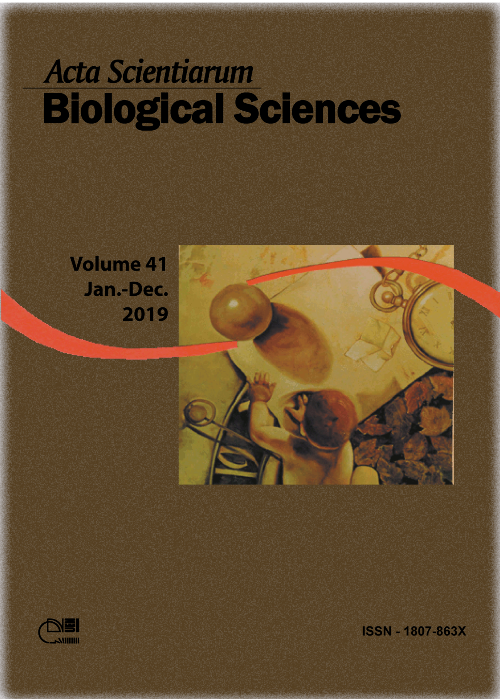<i>In situ</i> analysis of a composting plant located in São Paulo city: fungal ecology in different composting phases
Resumo
The National Plan for Solid Waste has set out to reduce by 25% the amount of organic waste disposed of in landfills, mostly food residues from street fairs, besides determining the implementation of municipal composting plants, and it also mentions improving the capacity of plants already installed. The purpose of the study was to analyze which decomposing fungi are involved in the different composting phases, in a plant located in the city of São Paulo. Data was collected in four composting seasons from 2016 to 2017 and the analysis of 49 samples showed twelve genera belonging to the Ascomycetes and Zygomycetes phyla, but only at the mesophilic phase. In all seasons, yeasts and Aspergillus fumigatus were predominant with a total count of 1.0 x 109 cfu g-1 and 7.4 x 108 cfu g-1, respectively. These fungi can be applied in future studies of biostimulation to optimize the cycle at the municipal plant.
Downloads
- Sem título
- Sem título
- In situ analysis of a composting plant located in São Paulo city: fungal ecology in different composting phases
- In situ analysis of a composting plant located in São Paulo city: fungal ecology in different composting phases
- In situ analysis of a composting plant located in São Paulo city: fungal ecology in different composting phases
- In situ analysis of a composting plant located in São Paulo city: fungal ecology in different composting phases
DECLARAÇÃO DE ORIGINALIDADE E DIREITOS AUTORAIS
Declaro que o presente artigo é original, não tendo sido submetido à publicação em qualquer outro periódico nacional ou internacional, quer seja em parte ou em sua totalidade.
Os direitos autorais pertencem exclusivamente aos autores. Os direitos de licenciamento utilizados pelo periódico é a licença Creative Commons Attribution 4.0 (CC BY 4.0): são permitidos o compartilhamento (cópia e distribuição do material em qualqer meio ou formato) e adaptação (remix, transformação e criação de material a partir do conteúdo assim licenciado para quaisquer fins, inclusive comerciais.
Recomenda-se a leitura desse link para maiores informações sobre o tema: fornecimento de créditos e referências de forma correta, entre outros detalhes cruciais para uso adequado do material licenciado.












1.png)




3.png)













